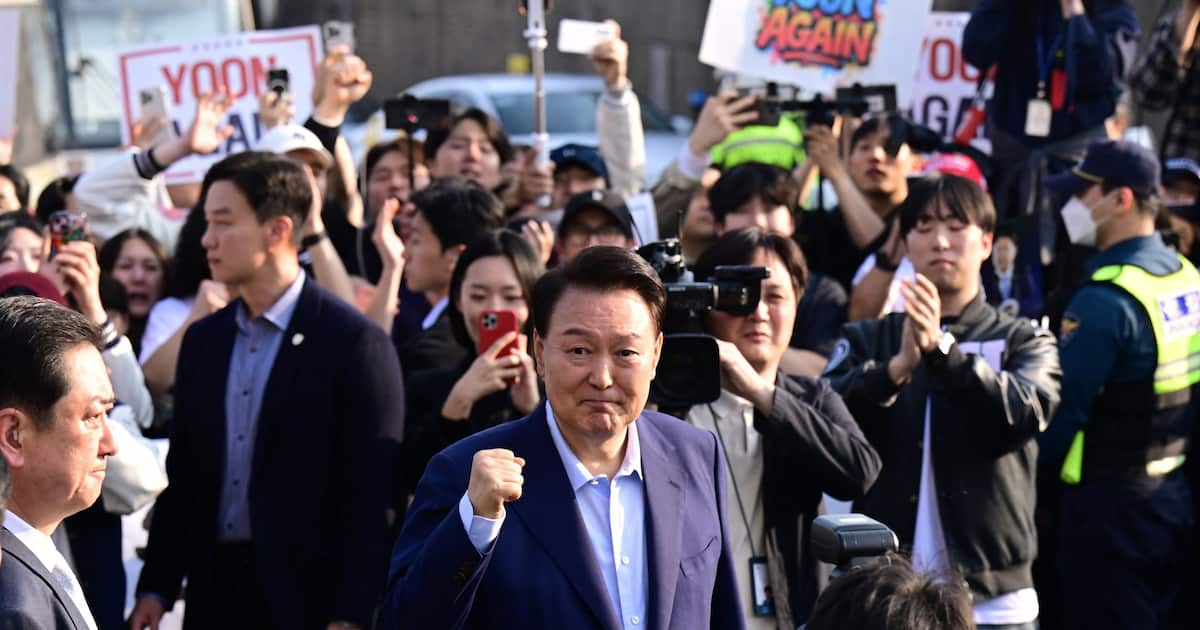Korea's Conservatives: Past Mistakes, Future Choices
A Deep Dive into the Shifting Landscape of South Korean Conservatism
South Korea's conservative political landscape is undergoing a period of significant transformation. Recent electoral results and shifting public opinion demand a critical examination of the movement's past, present, and future trajectory. This article delves into the key mistakes of the past, analyzes the current challenges, and explores the crucial choices facing Korean conservatives as they navigate an increasingly complex political environment.
Past Mistakes: A Critical Retrospective
The conservative movement in South Korea, while historically dominant, has faced significant setbacks in recent years. Several key mistakes contributed to this decline:
1. The Scandals that Shook Public Trust:
The numerous corruption scandals involving prominent conservative figures significantly eroded public trust. These scandals, ranging from bribery to abuse of power, created a perception of elitism and a disconnect from the concerns of ordinary citizens. This severely damaged the party's reputation and fueled a shift towards progressive alternatives. Transparency and accountability are paramount for regaining public faith.
2. Rigid Ideology and Resistance to Change:
A perceived inflexibility and resistance to adapting to evolving societal values alienated younger generations. Issues such as LGBTQ+ rights, gender equality, and environmental concerns were often met with resistance, hindering the party's ability to connect with a significant portion of the electorate. Embracing progressive ideals while staying true to core conservative values is a delicate balancing act.
3. Failure to Address Economic Inequality:
While often associated with economic growth, the conservative party failed to adequately address the growing issue of economic inequality. This created resentment among those struggling financially, leading them to support parties promising more equitable policies. Economic policies must prioritize both growth and fair distribution of wealth.
The Current Challenges: Navigating a Shifting Tide
The conservative movement in South Korea currently faces a multitude of challenges:
- Internal Divisions: Factionalism and internal power struggles continue to weaken the party's unity and effectiveness.
- Demographic Shifts: A rapidly aging population and declining birth rates demand innovative policies to address the changing demographics and ensure future economic stability.
- Geopolitical Complexities: The ongoing tensions with North Korea and the evolving relationship with China and the US require a nuanced and strategically sound approach to foreign policy.
- The Rise of Populism: The emergence of populist movements poses a challenge to traditional conservative platforms, forcing the party to adapt its message and strategies.
Future Choices: A Path to Revitalization
For South Korea's conservatives to regain public trust and relevance, several crucial choices must be made:
1. Embracing Transparency and Accountability:
Implementing robust measures to prevent and address corruption is essential. This involves strengthening internal party regulations and promoting transparency in all financial dealings.
2. Modernizing the Party's Platform:
Adapting to evolving social values and addressing issues such as LGBTQ+ rights and gender equality is critical for attracting younger voters and broadening the party's appeal.
3. Prioritizing Inclusive Economic Growth:
Developing policies that address income inequality and create economic opportunities for all segments of society is essential for building a stronger and more unified nation.
4. Promoting Unity and Collaboration:
Overcoming internal divisions and fostering a collaborative approach will strengthen the party's ability to present a coherent and persuasive message to the electorate.
Conclusion:
The future of South Korea's conservative movement hinges on its ability to learn from past mistakes, address current challenges, and make bold choices for the future. By embracing transparency, modernizing its platform, prioritizing inclusive growth, and fostering unity, the conservative movement can regain public trust and play a vital role in shaping South Korea's future. The path forward demands introspection, adaptation, and a genuine commitment to serving the interests of all South Koreans.
Keywords: South Korea, Korean Politics, Conservatives, Political Landscape, Elections, Corruption, Economic Inequality, Social Issues, Geopolitics, Future of Conservatism, Political Reform, Public Trust, Policy Reform
Related Articles: (Internal Links – Assuming you have articles on these topics)
- [Link to article about recent South Korean elections]
- [Link to article about South Korean economic policy]
- [Link to article about social change in South Korea]
External Links: (Links to relevant news sources and think tanks)
- [Link to reputable news source covering South Korean politics]
- [Link to a relevant think tank analyzing South Korean political trends]
(Note: Replace bracketed links with actual links to relevant content.)
